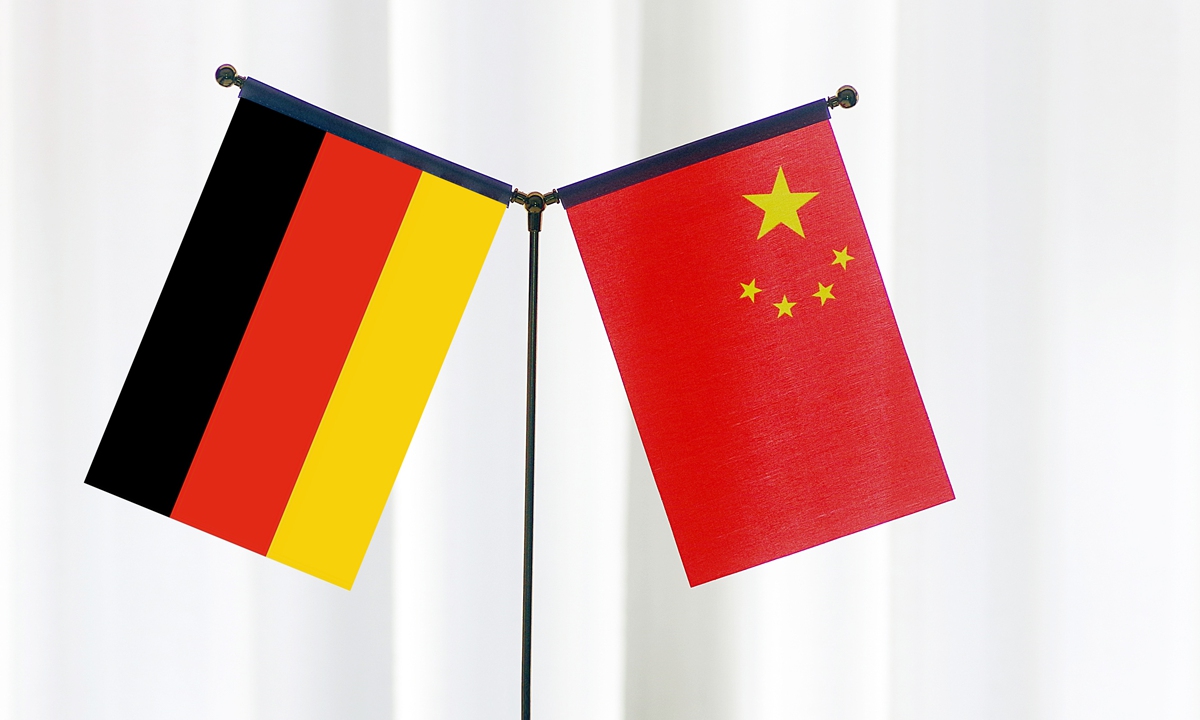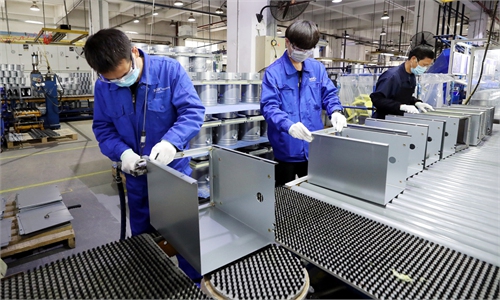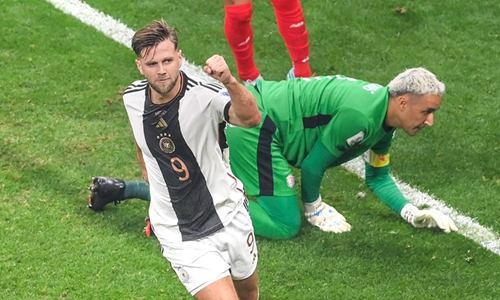Hype about Europe’s new infrastructure plan won’t hinder pragmatic cooperation with China: analysts

China Germany Photo:VCG
The German government has reportedly submitted a secret list of projects to the EU Commission to accelerate the EU’s Global Gateway initiative, a plan that some Western media outlets and German Green Party politicians hype as aiming to counter China’s global influence with a “better offer” that is “transparent and on an equal footing.”
While those politicians have been sparing no effort to create discord in China-Germany relations, analysts pointed out that their attempts won’t hinder the two countries’ pragmatic economic cooperation, which has gained new momentum afterGerman Chancellor Olaf Scholz’s visit to China last month.
China, which proposed the Belt and Road Initiative (BRI), welcomes all kinds of initiatives to facilitate infrastructure connectivity, which lays the foundation for global economic development. Despite a certain level of healthy competition, there are multiple investment areas where China, Germany and Europe could make joint contributions under these mega plans, such as in new energy and in facilitating the process of the China-EU Comprehensive Agreement on Investment (CAI), analysts said.
According to a translation based on a report by German news portal Handelsblatt, there are 20 projects in the proposal submitted to the EU Commission, including a lithium mine in Serbia, a train connection from Burkina Faso to the Ghanaian port of Takoradi, and a data cable between Chile and Australia.
Handelsblatt,, in the headline, described the list as the “traffic light plan against China’s global influence.” German Foreign Minister AnnalenaBaerbock of the Green Party was quoted as saying in the report that the country must “demonstrate to other countries that we, as the EU, can make better offers, in a transparent way and on an equal footing”.
The list of initiatives drawn up by the German government is reportedly to provide an impetus for the implementation of Europe’s Global Gateway plan, an infrastructure initiative to mobilize up to 300 billion euros ($341 billion) to finance EU infrastructure projects abroad. The plan was launched in December last year, but little progress has been made.
“Europe’s plan has been facing a number of challenges including the Russia-Ukraine conflictas well as fundraising difficulty among member countries. Now Germany is showing renewed interest as its companies’ overseas expansion demand rises,” Cui Hongjian, director of the Department of European Studies at the China Institute of International Studies, told the Global Times on Tuesday.
Cui noted that China welcomes all kinds of infrastructure plans, including the EU’s, as long as they’re conducive to helping global economy. Analysts said it is important to discern the rhetoric of anti-China forces with the attitude of Scholz’s government. The former is driven by a zero-sum mindset and is doomed to fail, while the latter displays pragmatism and receives acclaim among the German business community.
For instance, Baerbock and Economic Minister Robert Habeck, who belong to the Greens, have called for reducing dependence on the Chinese market and industry chain.
Most of the policies that preach “decoupling from China” are made by the Greens, which cater to the appetite of the Biden administration and carry a deep ideological undertone, Zhao Junjie, a research fellow at the Chinese Academy of Social Sciences' Institute of European Studies, told the Global Times on Tuesday.
The Greens are also catering to right-wing populism in Europe, which opposes European integration under the guise of “patriotism and safeguarding the core interests of a country,” Zhao said.
According to Zhao, Germany now is a three-party coalition government, so Scholz has to rely on the support of the other two coalition parties. Therefore, it is necessary to “find a balance between anti-Chinese sentiment and his own dialogue and pragmatic diplomacy, which requires that Scholz himself has a clear head to mediate”, Zhao said.
According to the Handelsblatt, a focal area of German investment is the Balkan region, which sits at a strategic location near the crossroads of Europe, Asia and Africa. The projects in the area listed by the German government include a wind farm in Bosnia and Herzegovina, and participating in lithium mining in Serbia.
“China has maintainedgood relationships with most of the Balkan countries, and most Chinese investments in the region are in energy and basic infrastructure, which are in line with the actual local demand,” Cui said, while pointing to broad prospects for further cooperation among China, Germany and Europe.
A typical example of the BRI investment in Balkans is the Port of Piraeus project run by China's COSCO Shipping in Greece, which has grown into the largest container port in the Mediterranean and the fourth-largest container port in Europe.
It is inevitable that Chinese and Europe investments in the same region would lead to a certain level of competition. Nevertheless, Cui said that China always welcomes “healthy competition” that is based on the principle of openness and fairness, and is not hijacked by politics.



